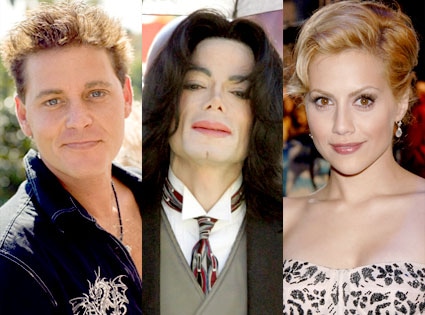 Michael Bezjian/Getty Images; Pool Photographer / Getty Images; Dave M. Benett/Getty Images
Michael Bezjian/Getty Images; Pool Photographer / Getty Images; Dave M. Benett/Getty ImagesWhat do we hear when we listen to the Corey Haim 911 call?
Do we hear the warning signs of pulmonary congestion? The dangers of prescription drugs? The challenges of early stardom?
Or do we hear an anguished mother—nothing more, nothing less than none of our business?
Amy Sue Vruwink hasn't sampled the Haim call. If it were up to her, 911 calls like Haim's wouldn't be the world's to sample. At least not if they were made in Wisconsin. That's where Vruwink's a state legislator, and where she's authored a bill that would keep 911 audio from general release. (Four other states have similar laws; Haim's Hollywood base of California does not.)
"It's really a victims' rights bill," Vruwink tells us. "Families don't want to be revisiting that time every time they hear [the 911 tape]. They don't want to keep hearing this over and over again."
Vruwink describes herself as a proponent of open government. And while the public has the right to know a 911 call's contents—under her bill, transcripts would still be released—she doesn't think the public necessarily needs to hear a 911 call's all-too-intimate moments.
"When this has to do with victims and families, this is a total different issue," she says. "What service does this do?"
It's a good question. And one that could be applied to the 911 calls for Michael Jackson, Billy Mays, Casey Johnson and Brittany Murphy, to name a few recent cases, in addition to Haim's.
What service does it do to hear the cries of Murphy's mother? Or the panic of Mays' wife? Or even the calm of Johnson's landlord or Jackson's caretaker? Couldn't the stories of these deaths be told just as accurately, if not emotionally, without sound effects?
These are not just questions for celebrity cases. Vruwink's bill, for instance, was inspired by a battle over a 911 call placed by a college student who came under brutal attack and subsequently died.
Supporters of on-demand 911 tapes have valid reasons—chief among them, that releasing the calls keeps the system honest. But if there wasn't such a thing as too much honesty, then the Los Angeles police wouldn't have launched an investigation over the leaked photos in the Rihanna-Chris Brown case.
The fact is, we—the government, the media, the public—do draw lines. And in the case of 911 calls like Corey Haim's, we should just cut them, too.
________
Corey Haim and other boldfaced names are paid tribute in our photo gallery, Celebrity Deaths: 2010's Fallen Stars.